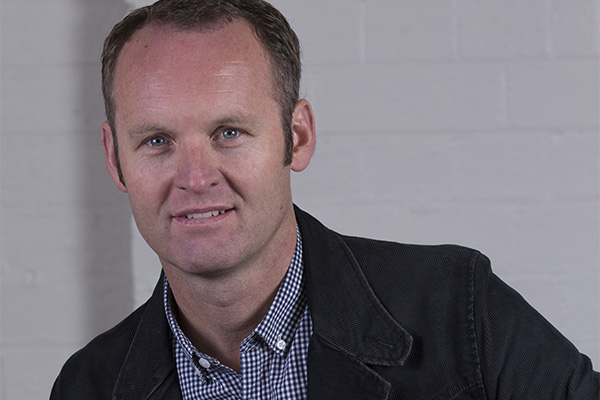Matthew Jacoby on the postmodern power of the psalms
It is 1994 and Matthew Jacoby and two fellow musicians are setting up in a church hall. The advertising reads: “Sons of Korah in concert.” Jacoby, studying for a theological degree, chooses the band name during an Old Testament class that introduced him to some of the original composers of the psalms. The band wants to put music to the psalms but has not adapted enough to fill out the concert. So, for enthusiastic friends, Jacoby and his friends play a hotchpotch of material including Psalm 23, 45, 144, 34 and early versions of Psalm 1 and 27.
Sons of Korah has now released eight albums that have sold more than 250,000 units worldwide. And Jacoby is now the teaching pastor—with a doctorate in philosophy—at Barrabool Hills Baptist Church in Geelong, Victoria, and an adjunct lecturer at the Melbourne School of Theology. He responds to questions about the Sons of Korah and about the psalms.
We see “Sons of Korah” in the subtitles of about a dozen psalms. Who are they?
They’re a group of Old Testament Levitical musicians who appear to be descendants of the same Korah who led a rebellion against Moses in the desert. This serious crime had serious consequences—God caused the ground to open up and swallow all those who were involved in the rebellion along with their families. But Numbers 26:11 tells us the line of Korah did not die out. And sure enough, in 1 Chronicles 6:31, David’s organising the different tasks for worship in the temple and assigns the ministry of song to the Kohathites. The family line continues to exist. So, the Sons of Korah were a living testimony to the grace of God. They had a lot to sing about. We do, too.
The Sons of Korah wrote several bright psalms, such as Psalm 84 and 85, but also what N T Wright calls “the darkest poem in the whole book”—Psalm 88. Do you sing the darker psalms as often as you do the brighter ones?
We sing many of the darker psalms because they’re an important part of the prayer life of the psalmists. In the lament psalms, the psalmists face the realities of a broken world and their own depravity. Their groaning sets their hope on what God is doing and faith grows. Psalm 126 says those who sow in tears will reap with songs of joy. The goal of the psalms is joy but that begins in the depths of lament.
You’ve described the psalms as speaking powerfully to a postmodern world. How do they do this?
They present a faith that’s grounded in reality. Spiritual expressions are not romanticised—they’re authentic and honest. Gutsy and relational spirituality goes beyond the prayer of token piety. The range of expression you find in the psalms is so much broader than in popular spirituality and so counter-cultural in a modern church context.
So, which of the psalms does your audience request more often?
Psalm 121. It’s a psalm of assurance and comfort. The other popular one is Psalm 27, an amazing expression of a heart so devoted to God it’s impervious to fear in the midst of the greatest threats.
The lyrics of the psalms you record come from the NIV translation of the Bible. Why this one?
It’s the most widely used translation but those translating it also did a good job of keeping the poetic element in the psalms. We take some liberties with the text to make it work with the music but not so much that the text becomes unrecognisable. We want people to recognise the psalms and memorise them in a form that’s as close to a good English translation as possible.
And your music sounds like it comes from Bible times.
Well, each psalm calls for its own style. We draw on a range of styles to express the range of expression in the psalms. With many of the praise psalms, we draw on the exhilarating sounds of Latin music. For the lament psalms, we draw on the haunting tones of Arabic music, which evokes that original eastern context. But there’s also hints of Celtic music. The hybrids and blends of styles hopefully make interesting and engaging music.
You’re also an author. What led you to write Deeper Places, your book about experiencing God in the psalms?
I remember being told as a young Christian that the best way to develop a relationship with God was to read the Bible and pray for myself and others. That’s simple and achievable advice, but it won’t be long before we realise the spiritual journey, the experience of relating to God, is far from simple. And if we make the spiritual life a simple matter of achieving goals, it becomes more about personal achievement than real relationship. So, where do we look for an account of spirituality that’s deeply relational, that’s congruent with the complexities of life, that affirms the tensions of human existence, and that goes beyond simplistic and pragmatic notions of the spiritual life? The answer I was looking for, and that I discovered by accident, is a songbook that’s the most widely quoted book of the Bible—even in the Bible itself—and that scholars have acknowledged to be the defining example of biblical spirituality. It’s the psalms.
Share

